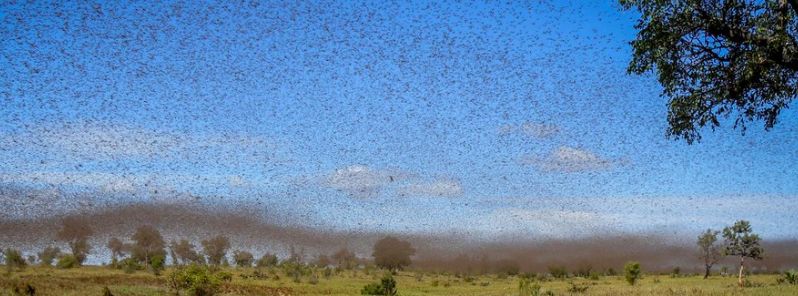Pakistan declares national emergency over worst locust infestation in 27 years

The government of Pakistan declared a national emergency on Saturday, February 1, 2020, as the nation faces its worst locust plague in 27 years. The insects have been devastating crops on a large scale in Punjab province, the country's main region for agricultural production.
The decision to declare a national emergency was made during a meeting summoned by Prime Minister Imran Khan on Friday, January 31. The meeting was attended by federal ministers and senior officials of four provinces.
A national action plan was also approved to allocate a sum of 7.3 billion rupees (102 million dollars) to tackle the crisis.
"We are facing the worst locust infestation in more than two decades and have decided to declare a national emergency to deal with the threat," said Information Minister Firdous Ashiq Awan.
In addition, the potential for large scale devastation poses risks of food insecurity.
According to the National Food Security Minister Makhdoom Khusro Bakhtiar, the locust swarms are on the border of Pakistan and India around the Cholistan and were previously in Sindh and Balochistan.
"The locust attack is unprecedented and alarming," said Bakhtiar. The last time Pakistan faced a serious locust infestation was in 1993.



"Action has been taken against the insect over 121 400 ha (300 000 acres) and aerial spray was done on 20 000 ha (49 421 acres). District administrations, voluntary organizations, aviation division, and armed forces are put into operation to combat the attack and save the crops."
Khan ordered the formation of a high-level committee to be led by Bakhtiar to take decisions at the federal level for the eradication of the locusts.
"[The] protection of farms and farmers is the highest priority of the government. Therefore, the federal government should take all necessary steps to save national crops and provide required resources to the quarters concerned," Khan stated.
The desert locusts came to Pakistan from Iran in June 2019, and have already infested crops including cotton, wheat, and maize.
Featured image credit: FAO emergencies

Well maybe if you did not kill soo mannny Cristians. God would shine His light upon you.